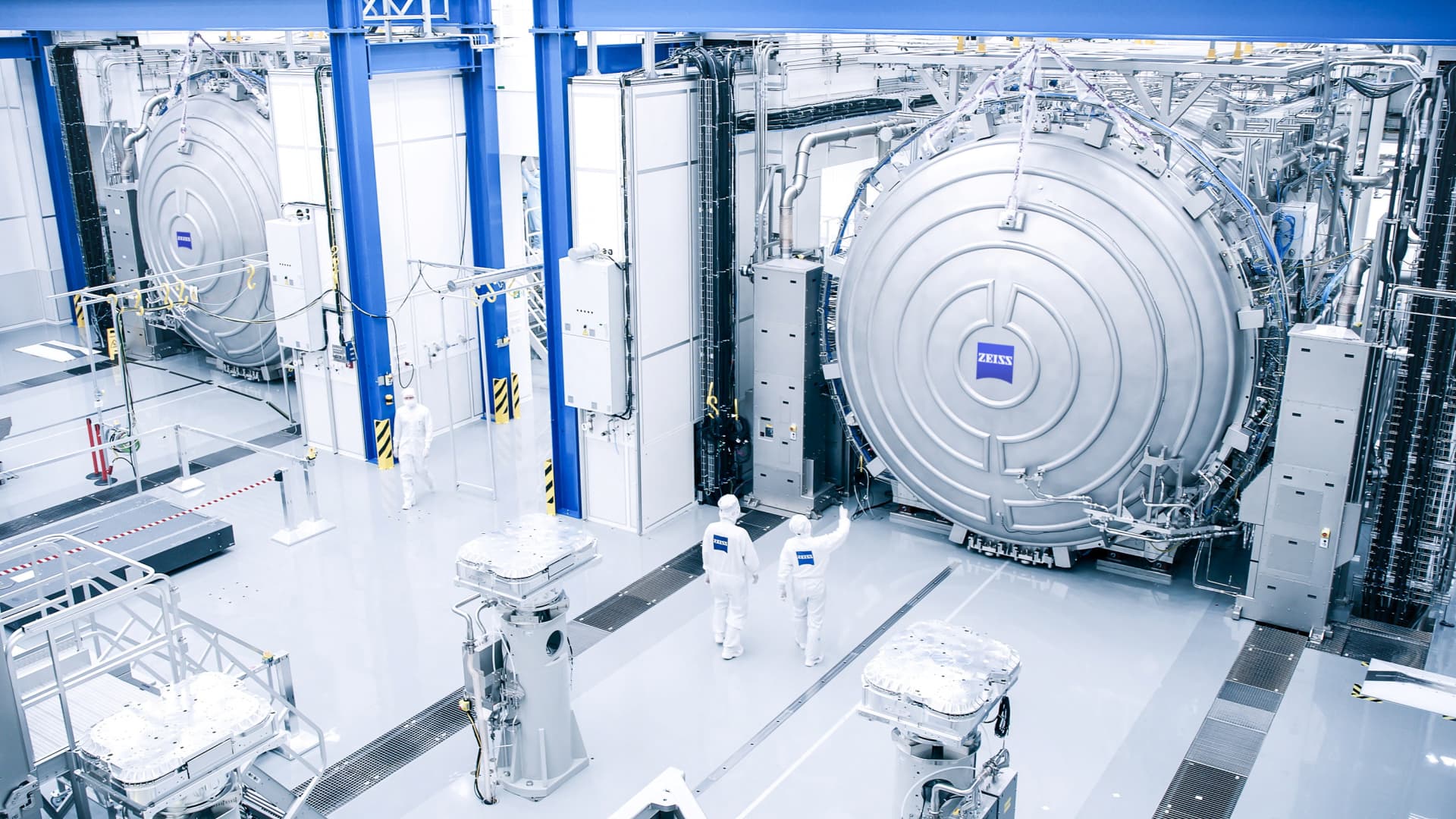ASML earnings drag semiconductor stocks lower

Workers at Carl Zeiss ZMT are seen outside giant vacuum chambers where optical systems for ASML’s new High NA EUV tool are tested.
ASML
Chip stocks fell on Wednesday after ASML, a key developer of semiconductor manufacturing equipment, said that bookings fell by 61% sequentially during the first quarter, a steeper drop than investors had expected.
AMD’s stock fell over nearly 6%, Nvidia shares fell over 3%, Intel shares fell under 2% and Qualcomm was off over 2%. But the biggest drop affected chip technology firm Arm, which was trading nearly 12% lower on Wednesday.
ASML fell over 7% on a day when the entire S&P 500 index was only down less than 1%.
ASML is essentially the only supplier of machines that are needed to build the most advanced chips in the world, which often cost hundreds of millions of dollars each. The Dutch company shipped 449 “lithography” machines in 2023, and its main customers include the world’s top processor foundries: TSMC, Samsung and Intel.
Its top two customers accounted for over half of its 2023 sales. Sales were down in Taiwan and South Korea, where TSMC and Samsung are based, respectively.
Foundries physically manufacture the chips that companies like Nvidia or Apple design, so any sign that they are buying less equipment could suggest a downturn in the deeply cyclical semiconductor industry, which could then impact the sales of chip companies to end customers. And since licensing companies such as Arm book a few cents of revenue whenever a chip is made using their technology, fewer sales of manufacturing machines could signal fewer chips coming to market overall.
Total bookings for ASML’s machines fell 4% year-over-year, and CEO Peter Wennink said in a statement that he expects the second half of 2024 to be stronger than the first half as the semiconductor industry manages a “recovery from the downturn,” adding that the company was in a “transition year.”
“You know it’s pretty clear that there’s a few usual suspects absent in the the order intake,” Wennink said on a call with analysts.
Wennink will retire at the end of the month, he said on the earnings call. He will be replaced by Christophe Fouquet, current chief business officer.
Wennink said that he expected companies building foundries in the U.S., such as Intel and TSMC, to put in more orders for lithography machines later this year. ASML also said that it expected that government subsidies for chip factories, such as the CHIPS Act in the U.S., would boost its sales. The company didn’t say how export controls on China were affecting its business.
“If you look at the announced plans of some of our larger customers, it’s pretty clear that in the next couple of quarters, significant orders need to come in,” Wennink said.









